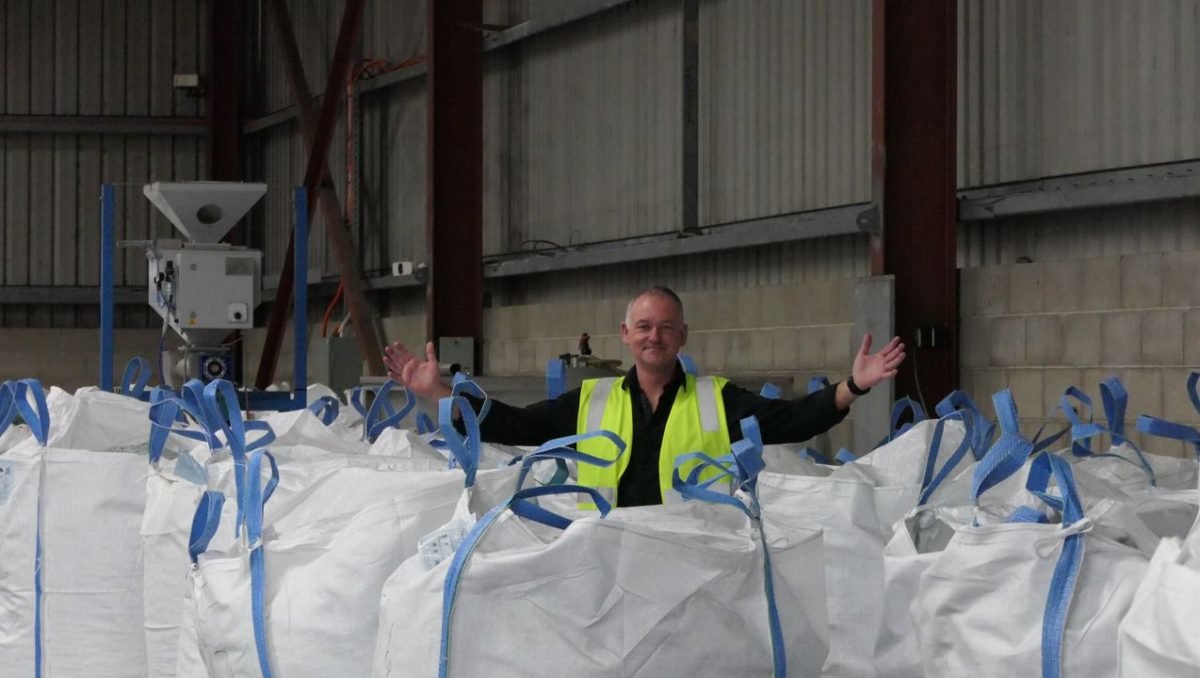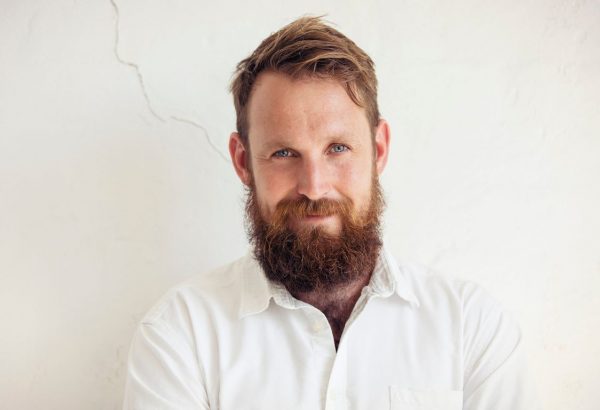BlockTexx leading the charge in textile recycling
A world-first operation opening soon in Loganholme will recycle around 50,000 tonnes of textiles and create 140 jobs over the next 4 years.
BlockTexx, founded by Adrian Jones and Graham Ross, will break down and repurpose cotton and polyester materials – which makes up around 80 per cent of textile use – that would ordinarily be destined for landfill.
BlockTexx’s textile recovery facility is worldleading, combining chemical separation processes and advanced manufacturing.
Graham, a former TV editor and producer, says he first became interested in seeking solutions to textile waste when he became a keen runner.
‘Every time you run in a marathon or triathlon, you are given a shirt – so a lot of my friends and I ended up with a wardrobe full of shirts we never used and would eventually throw away,’ Graham says.
‘I started to look into what that meant and I was shocked at the impact my wardrobe had on the environment. There are charity shops of course – but very little in place for the end of life of a garment.
‘At BlockTexx, we can start to reduce that – and importantly, the organisation has been designed to be scalable, so that eventually there can be replicas of our own warehouse and machinery across Australia and overseas too.
‘We are writing the manual here because we are the first to do it. We are a small business now, but with a view to becoming a global business.
‘Logan is the best place to start – it is a region that is really punching above its weight with its focus on sustainability and innovation. We have received so much support in the area.’
When Graham and Adrian – who has worked in the fashion industry for his whole career – teamed up, they began to work on something that would leave a positive legacy.
The recycling process sees material being put into a huge vat, where polyester and cotton are separated. Cotton is broken down to cellulose, which can be used for paints, cosmetics, concrete and more. Polyester goes through a heating and liquifying process to become pellets that can be used for a diverse range of things from playground equipment to furniture, to coathangers.
Graham says BlockTexx is ‘the epitome of a circular economy’.
‘Everything coming in here is waste and everything going out of here is a product,’ he says.
‘We already have hundreds of tonnes of material ready to be recycled when we open.’
BlockTexx will receive materials to recycle from large scale laundries and workwear companies.
‘Both of these industries have no end-of-life solution other than landfill for their materials and we are providing them with that,’ Graham says.
‘I’m really excited that we are now fulfilling this dream.
‘I’m thankful to all of the people who have bought into this and supported what we are doing, partnering with us and being willing to come on this journey too.’
BlockTexx also works with the Endeavour Foundation, employing its clients to help prepare fabric for recycling by removing zips and buttons.
Because of the need for material to be 100 per cent cotton and polyester, BlockTexx will be unable to accept individual donations of materials.
BlockTexx is initially focused on large commercial clients as they scale their operations and are not accepting individual donations of materials.
‘We are aiming for a 95 per cent recovery rate of everything coming in,’ Graham says.
BlockTexx has received funding from private investment and grant funding from all 3 tiers of government. It will be fully operational by July. Head to the website to find out more about BlockTexx.




